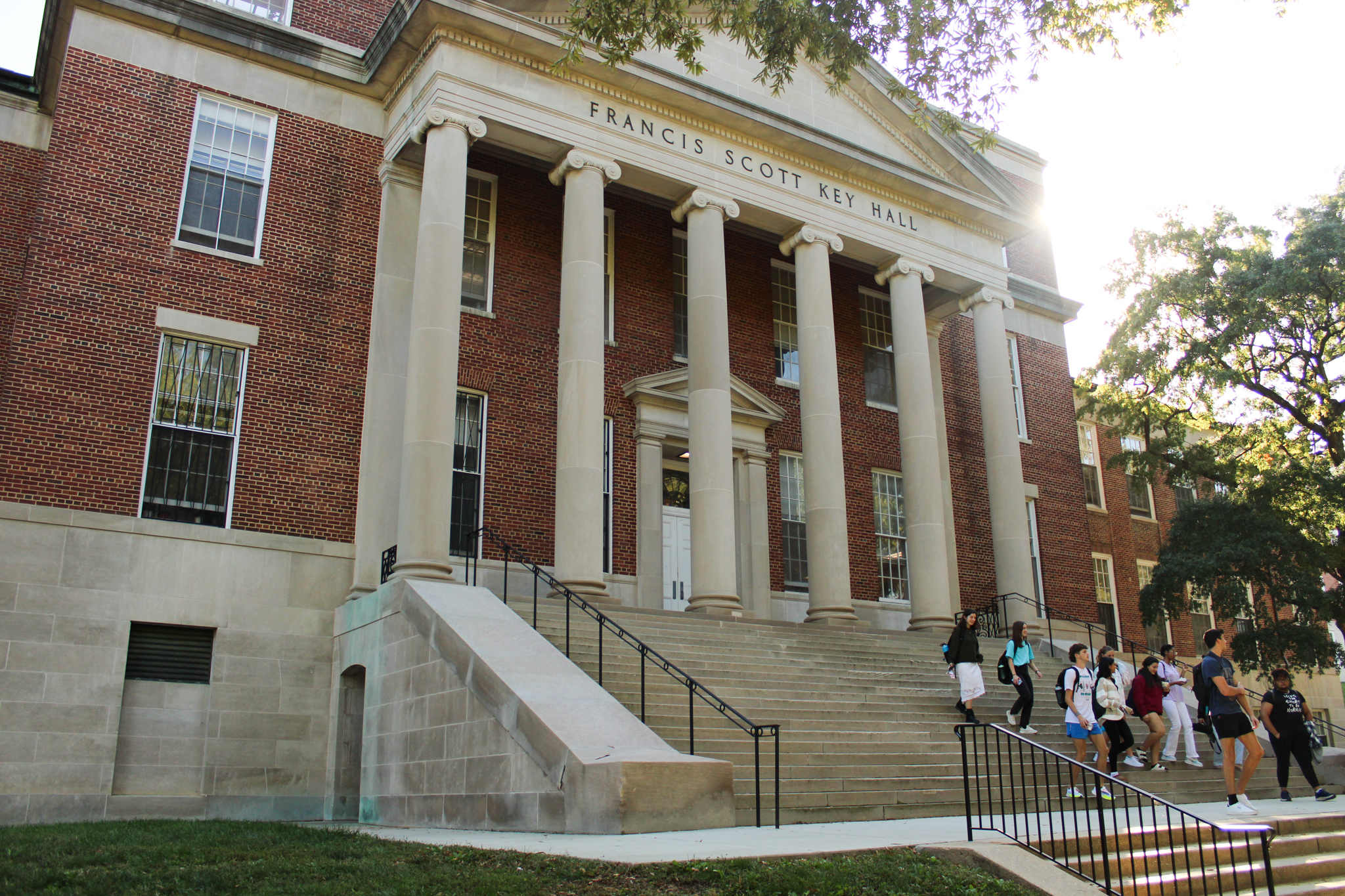The University of Maryland SGA will create an investigative committee to explore the renaming of Francis Scott Key Hall.
The committee— called the Key Legacy Assessment Board— will determine whether Francis Scott Key, a Marylander who wrote “The Star-Spangled Banner,” aligns with this university’s mission and values.
The questions revolve around Key’s founding of the American Colonization Society, which supported the migration of free, black Americans in the 1800s from the United States to an African colony, now known as Liberia.
On Oct. 11, the Student Government Association passed a bill to create the select committee. The committee will look into whether Francis Scott Key’s anti-abolitionist past violates this university’s policy, which states that a building’s name must align with this university’s values.
Muntaha Haq, the SGA’s director of diversity, equity and inclusion, will serve as the committee’s chair.
The committee will also include other stakeholders, such as professors, student groups, SGA members and other students at this university, Haq, a senior international business major, said.
Students can join the committee as at-large members by completing an application, Haq added.
[UMD SGA offers positive outreach, gender-affirming resources to LGBTQ+ students]
Chelsea Boyer, SGA’s transfer representative and sponsor of the bill, said the comprehensive group is designed to give stakeholders a voice in the process.
“Anyone on campus who feels that they have a perspective or a specific connection to this issue can apply,” Boyer, a sophomore communication major, said. “We want everyone’s opinion.”
After the investigation, the committee will create a formal report on whether the committee believes Francis Scott Key Hall should be renamed, according to Boyer.
In an interview with The Diamondback, university president Darryll Pines said the report will be presented to him and other university officials.
But the decision to rename the building will ultimately be up to the University System of Maryland’s Board of Regents, Pines added.
Pines said this university has made efforts in recent years to acknowledge diversity on campus— citing past efforts to rename buildings after trailblazers of color, such as Johnson-Whittle Hall, Pyon-Chen Hall and the Yahentamitsi Dining Hall.
“We’ve been making these overtures to the diversity and inclusivity of our campus community as a way to show we care about all cultures and that we want to make everyone feel welcome in our campus community,” Pines said.
[Affordable textbooks, financial literacy resources top of mind for UMD SGA]
Other SGA members were also intrigued by the new initiative.
Trevor Hennebery, an SGA arts and humanities college representative, is excited about the committee’s creation.
He said he hopes the committee addresses Key’s participation in the American Colonization Society.
“When I saw that that same name was on that building over there, it just didn’t sit right with me,” Hennebery, a sophomore government and politics and history major, said.
In a 2021 non-binding SGA referendum, 59 percent of student voters said that Key’s actions violated this university’s values.
Haq hopes to continue the conversation moving forward.
“I hope to re-instigate this conversation and this dialogue with necessary stakeholders,” Haq said. “I want to ensure that we are offering a very objective analysis on the contributions of Francis Scott Key in all roles of his life.”



